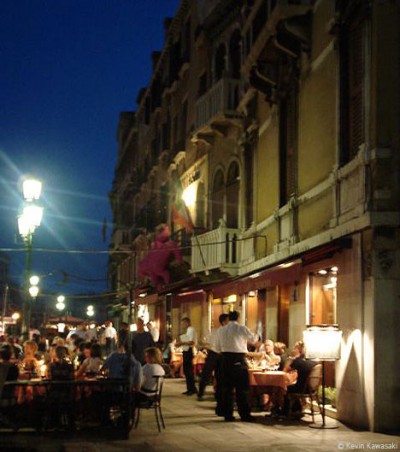Social responsibility a boon to local neighborhoods

How valued is the word local in the modern economy? A lot.
The importance of local investment is covered extensively on Trendwatching.com this month – the report, (Still) Made Here, documents “the comeback of all things local, all things with a sense of place, and how they’re surfacing in a world dominated by globalization… where a growing number of consumers are seeking out the local, and thereby the authentic, the storied, the eco-friendly and the obscure.”.
Trendwatching presents the trend toward the local via three drivers, social responsibility, status and community.
A look at how social responsibility promotes the local economy, culture:
– Books emphasizing local economies are proliferating (one of the best being Deep Economy mentioned in the previous entry), supermarket products and shoes display carbon impacts, produce displays their farm origins, and organic food is increasingly being grown locally.
– On the CoolTown front, you’ll see an emphasis on local businesses vs chains, green buildings using local materials, and support for growing fast-growth small businesses locally rather than stealing corporations from other cities. What’s the big deal? More money stays in the neighborhood, and a refreshingly healthy amount of authentic, local culture as well, like that local coffeehouse that lets you stay extended hours, promotes local artists, listens to you and supports community events, vs the national coffee chain that is focused foremost on efficiency and profit for its HQ. Check out more on this aspect at Where.
Next: How status and community affect local neighborhoods.
Image: It doesn’t get more local than in Venice. Thanks to Kevin Kawasaki for the image.

An issue I raised in the (Still) Made Here posts over at Where that I’m still pondering: if neighborhoods become status symbols, how can they be so transformed through revitalization as opposed to straight-up gentrification? Not saying that wealthy people can’t cluster together if they really want to…but economic integration is pretty important to creating long-lasting neighborhood success, I think. So, while status and eco-ethics are great drivers for neighborhood change, how does a community keep the focus on local culture and not on vapid, conspicuous consumeristic gold stars?
Another question that popped into my head just now: have you explored how Beta Communities would incorporate affordable housing and/or economic integration aspects, or is that not at all a focus?